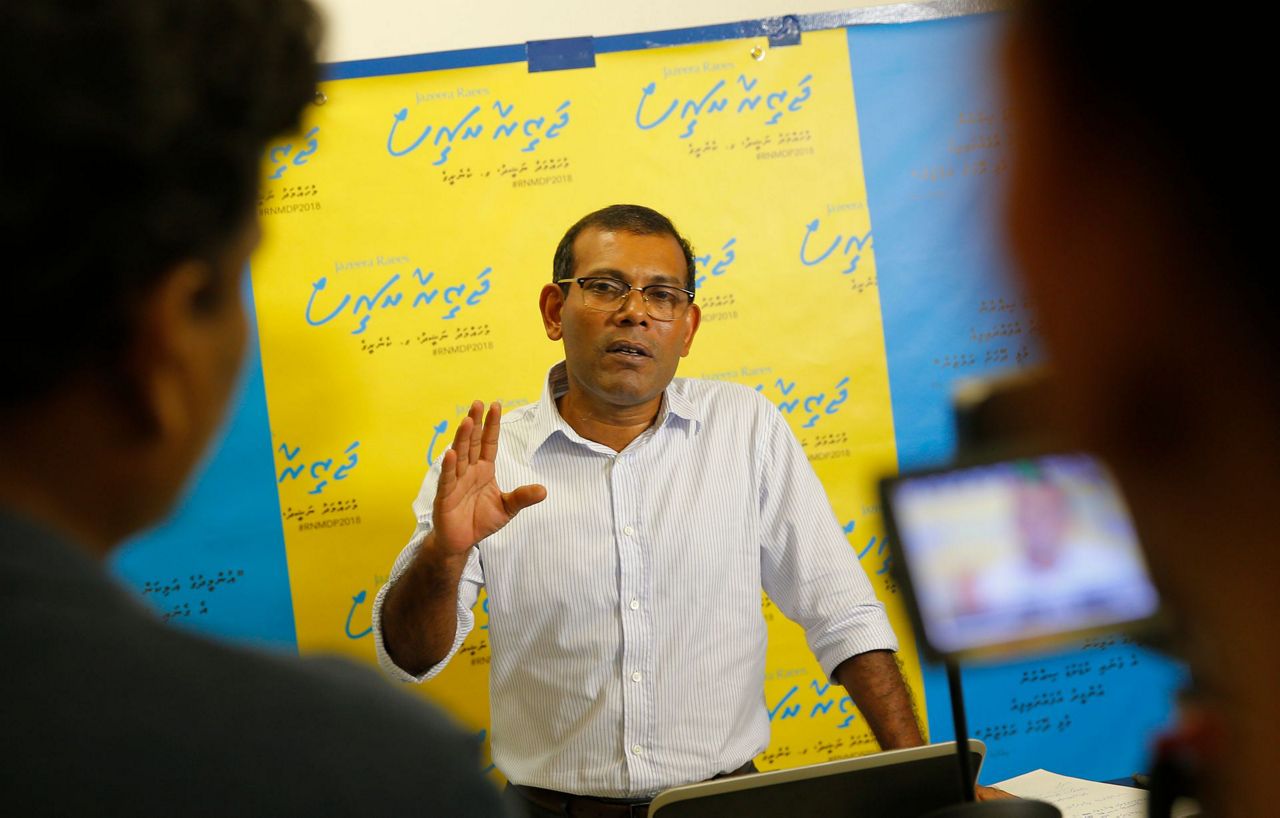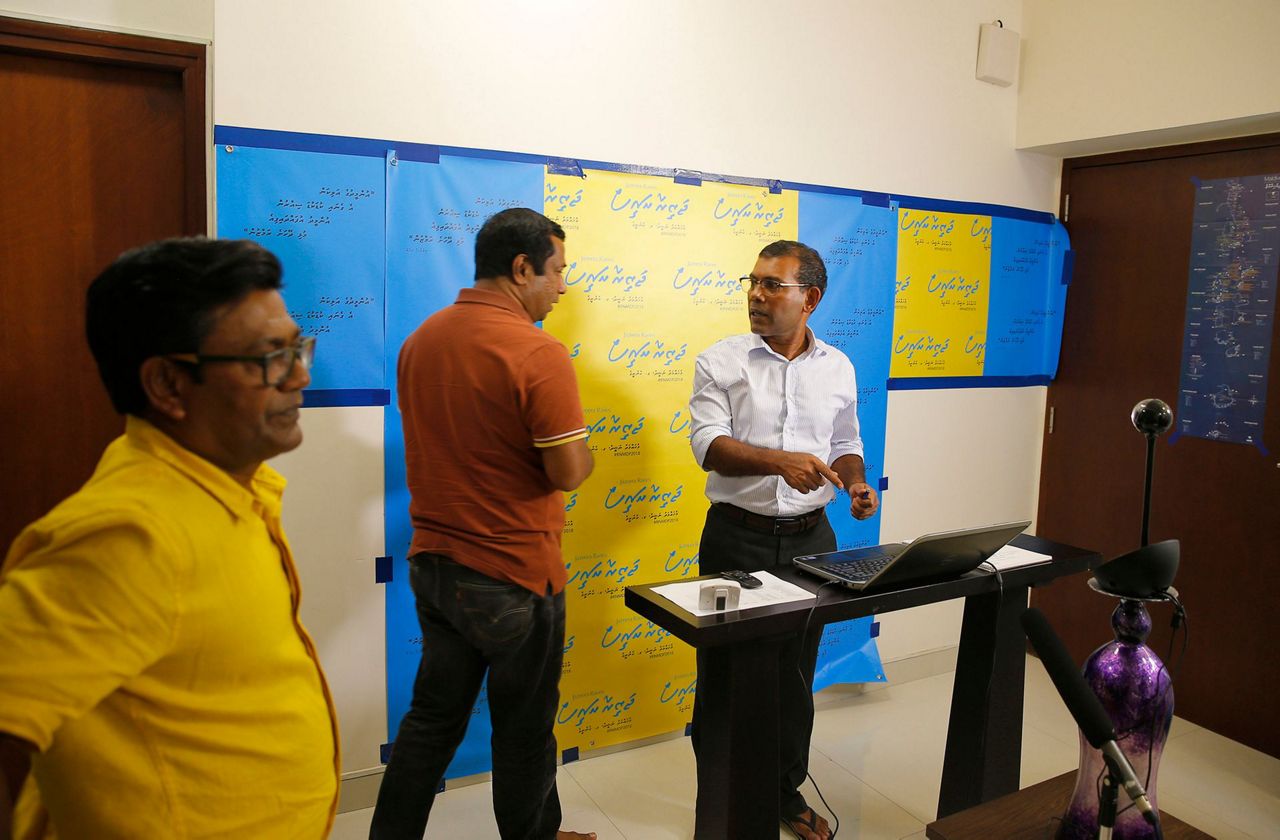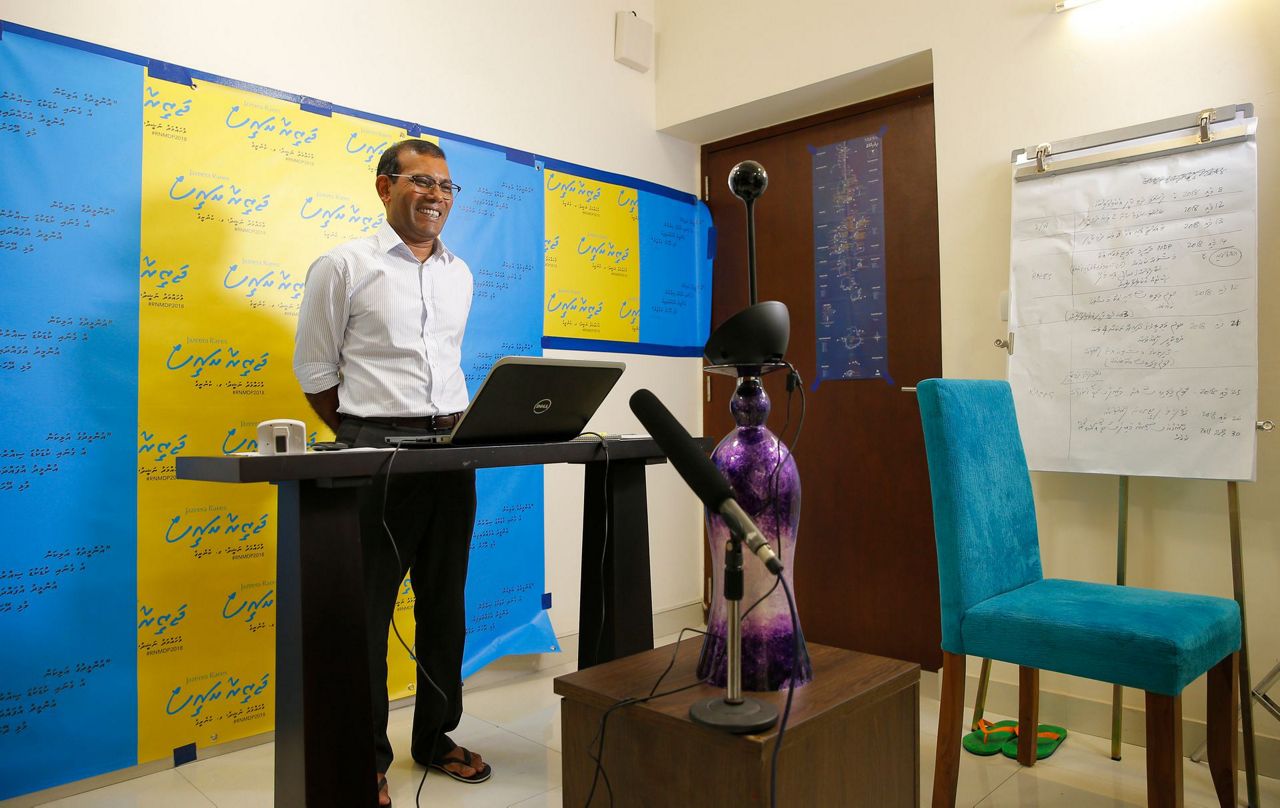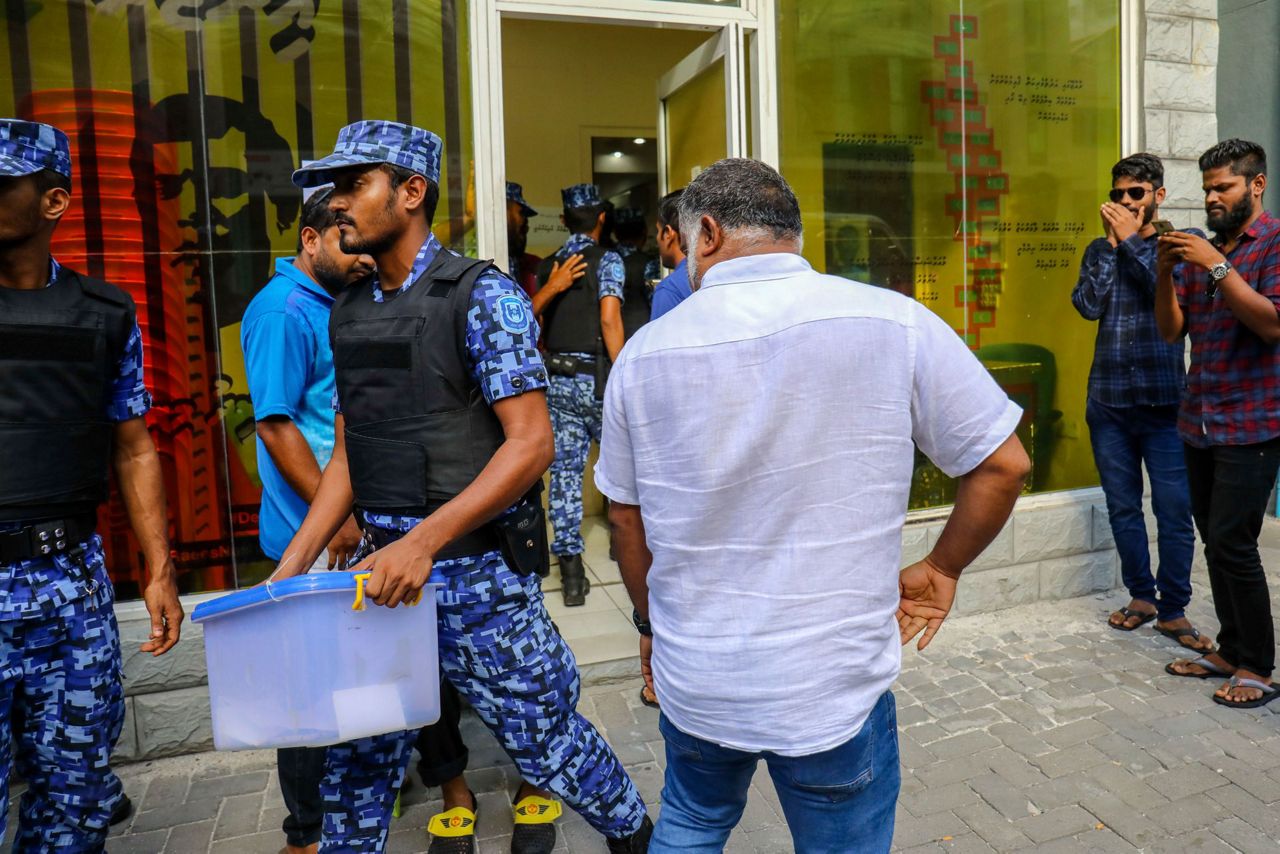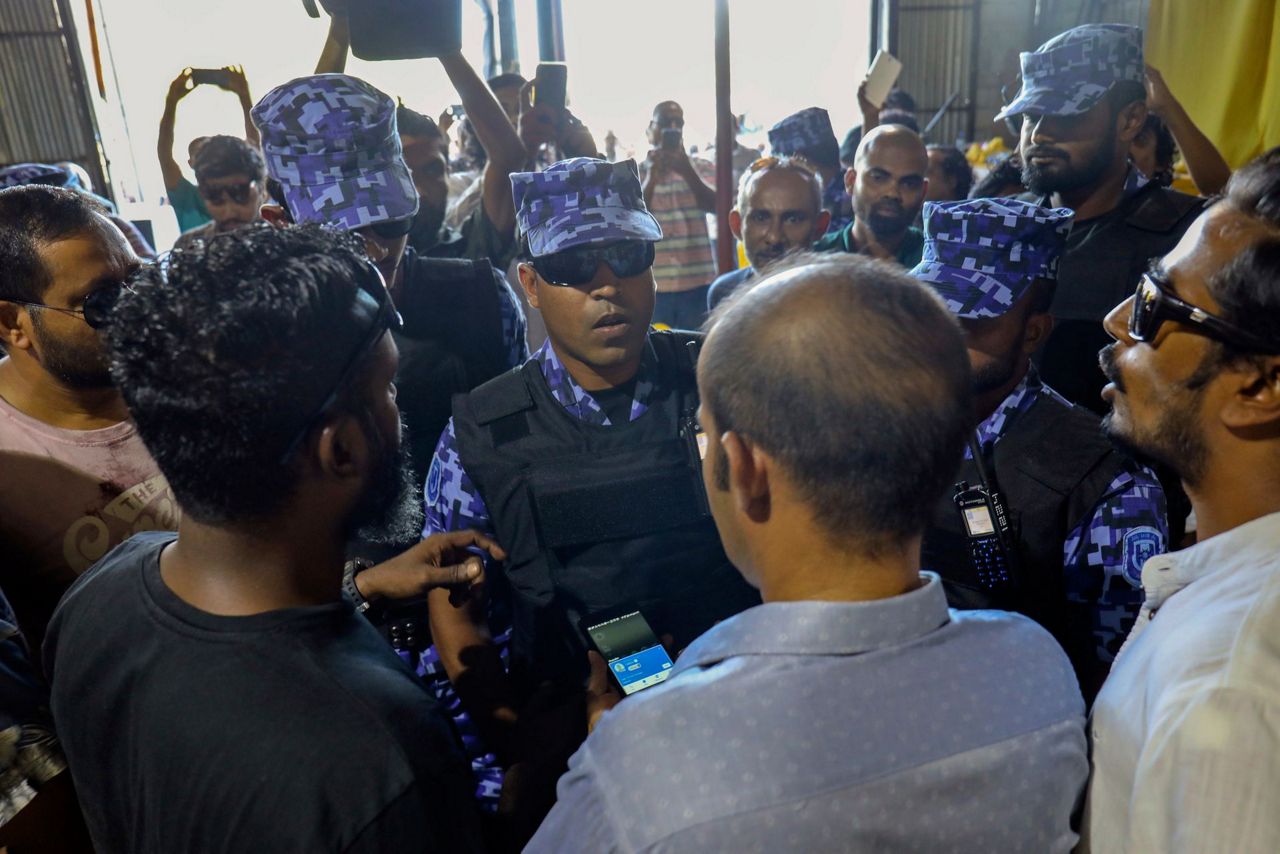COLOMBO, Sri Lanka (AP) — He's a convicted criminal who lives in exile, a fugitive who hopes for the near-impossible: the presidency of the Maldives.
The odds are stacked against Mohamed Nasheed. His 13-year prison sentence disqualifies him from running for political office, and he'd be quickly locked up if he tried to campaign back in his archipelago homeland. His main rival, President Yameen Abdul Gayoom, now has near-absolute power, tightly controlling everything from the courts to the police. Yameen is set to run for a second five-year-term virtually unopposed, with all his potential rivals either in jail or in exile. Legally, Nasheed isn't even a candidate.
But Nasheed has won before. In 2008 he became the first democratically elected president of the Maldives, a nation best known for its expensive high-end resorts, ousting its longtime strongman. He was forced out himself in 2012, and later was convicted in a trial widely condemned as politically motivated.
But today he's the chosen candidate of the main opposition group, the Maldivian Democratic Party. He's confident and well-spoken. And he's already on the campaign trail — albeit only online for now — preparing for an election expected sometime between September and November.
He will, he insists, face off against Yameen. "There is no backup," he told The Associated Press in an interview in neighboring Sri Lanka, where he has lived much of the time since going into exile. "Thinking of a plan B, you go into this territory of uncertainty."
For now, much of his work is organizing supporters to pressure the government into giving him a spot on the ballot. That will, he says, most likely mean calling on thousands of supporters to pour into the streets of Male, the country's crowded capital, to demand he be allowed to run.
"It is by sheer numbers (of supporters) that we will be able to achieve our objectives," he said.
For now, much is unclear.
Earlier this week, Nasheed was the only candidate in the Maldivian Democratic Party primary, despite the Election Committee telling the party he was prohibited from running, and the police seizing some ballot boxes. The commission also threatened to dissolve the party if Nasheed refused to withdraw. The party, though, insists the commission has no authority over its choice of candidates, and says the courts must decide on the matter.
Every few days, Nasheed talks to his supporters in video chat sessions, giving speeches and answering questions from people gathered in community centers or makeshift campaign offices. So far, he's addressed rallies in 131 of the country's 196 occupied islands. Much of the discussions are about encouraging people to prepare for protests.
The video connections have allowed him to reach more people than he would in a traditional campaign, when he'd have to travel to the islands. But there's a cost too.
"Technology allows us to reach more people, but it's nothing like the personal touch, nothing like shaking hands with someone, nothing like touching someone," he said.
The Maldives embraced multiparty democracy in 2008 after decades of autocratic rule by Maumoon Abdul Gayoom, the half brother of the country's current ruler. But four years later Nasheed resigned, amid waves of protests over his order for the military to detain a judge. He ran in 2013 presidential elections, but lost to Yameen.
Nasheed was later charged with abducting the judge, tried under the country's tough terrorism laws and sentenced to 13 years in prison. Britain gave him political asylum when he traveled there for medical treatment.
Since Yameen's election, Maldives has been fast sliding back into autocracy. One of Yameen's vice presidents, two of his defense ministers, two supreme court justices, a prosecutor general and numerous opposition politicians have been jailed. Former strongman Gayoom — now an opposition politician himself — is under detention and on trial.
In February, the Supreme Court ordered the release and retrial of Nasheed and a group of Yameen's opponents. But Yameen quickly had two Supreme Court justices arrested under a state of emergency, accusing them of plotting to unlawfully oust him from power.
The remaining three judges annulled the order to release Nasheed.
Copyright 2018 The Associated Press. All rights reserved. This material may not be published, broadcast, rewritten or redistributed.



